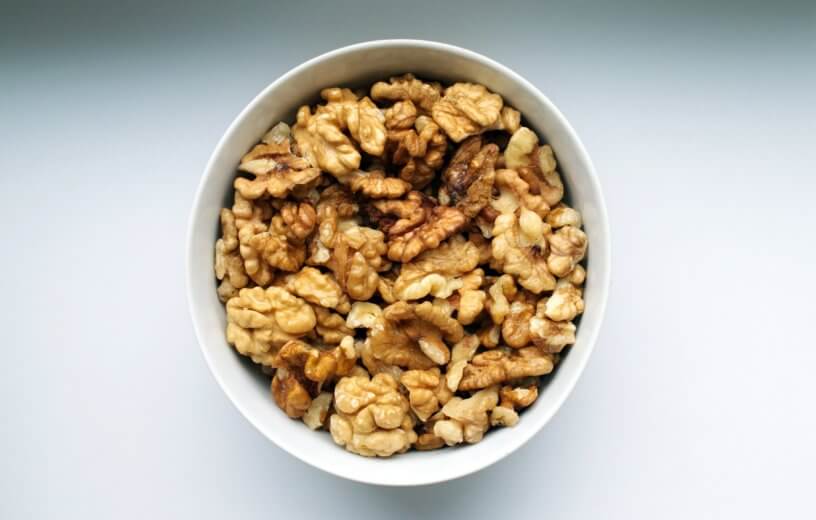UNIVERSITY PARK, Pa. — There is a growing consensus in the scientific community that a healthy stomach, filled with beneficial “good” gut bacteria can go a long way towards promoting a strong and robust heart. With this relationship in mind, a new study conducted at Penn State finds that walnuts promote the production of good gut bacteria, consequently indicating they’re also good for our hearts.
In short, these findings make a strong case that walnuts should be your food of choice the next time you’re on the lookout for a mid-afternoon snack.
After holding a randomized, controlled trial, the research team concluded that incorporating a daily serving of walnuts into a healthy diet is associated with increases in beneficial stomach bacteria. These positive developments in gut bacteria count were then found to be associated with a lower risk of heart disease.
“Replacing your usual snack — especially if it’s an unhealthy snack — with walnuts is a small change you can make to improve your diet,” comments Kristina Petersen, an assistant research professor at Penn State, in a university release. “Substantial evidence shows that small improvements in diet greatly benefit health. Eating two to three ounces of walnuts a day as part of a healthy diet could be a good way to improve gut health and reduce the risk of heart disease.”
Outside of their gut benefits, prior research had already found that walnuts are good for our hearts. For instance, one such study concluded that eating whole walnuts every day resulted in lower blood pressure and cholesterol.
“There’s a lot of work being done on gut health and how it affects overall health,” explains Penny Kris-Etherton, a distinguished professor of nutrition at Penn State. “So, in addition to looking at factors like lipids and lipoproteins, we wanted to look at gut health. We also wanted to see if changes in gut health with walnut consumption were related to improvements in risk factors for heart disease.”
For the study, 42 overweight or obese adults between the ages of 30 and 65 were placed on an “average American diet” for a period of two full weeks. After that, the participants were randomly separated into three different diets. All three, however, involved less saturated fat than the original “American” diet they had adhered to for two weeks. One of the three new diets included whole walnuts each day, while the other two either completely or partially made up for the lack of walnuts and saturated fat with vegetable oils. Participants followed these new diets for six weeks.
Fecal samples were collected within 72 hours of participants finishing the first American diet, and then again after completing the subsequent healthier diet, in order to gauge bacteria in the gut.
“The walnut diet enriched a number of gut bacteria that have been associated with health benefits in the past,” Petersen says. “One of those is Roseburia, which has been associated with protection of the gut lining. We also saw enrichment in Eubacteria eligens and Butyricicoccus.”
The research team observed that greater numbers of Eubacteria eligens was associated with a reduced risk of high blood pressure. Additionally, those who followed the walnut diet saw their Lachnospiraceae, another healthy gut bacteria, count go up. Greater numbers of this bacteria are associated with drops in blood pressure and cholesterol.
The other two diets that participants followed did not result in any meaningful changes in their gut microbiomes or heart health risk factors.
“The findings add to what we know about the health benefits of walnuts, this time moving toward their effects on gut health,” Kris-Etherton concludes. “The study gives us clues that nuts may change gut health, and now we’re interested in expanding that and looking into how it may affect blood sugar levels.”
The study is published in The Journal of Nutrition.
